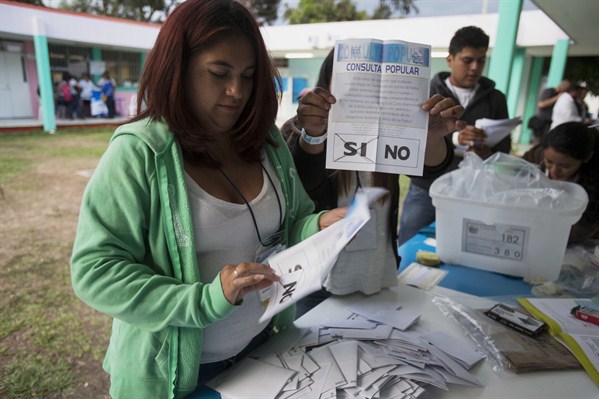The International Court of Justice is set to weigh in on the long-standing territorial dispute between Belize and Guatemala. Belize likely has the upper hand.
Since gaining independence in 1821, Guatemala has refused to recognize all or part of Belize, its small English-speaking neighbor. But under the terms of a 2008 agreement, this long-running territorial dispute will soon head to the International Court of Justice in The Hague. That agreement required each country to hold a referendum on going to the ICJ, which Belizeans approved earlier this month; Guatemalans did so in April 2018. In an email interview with WPR, Victor Bulmer-Thomas, an honorary professor at University College London’s Institute of the Americas, explains the historical roots of the dispute and why Belize will have the stronger case at the ICJ.
World Politics Review: Why have Belize and Guatemala been unable to reach agreement on a shared border, and how has the dispute affected bilateral relations since Belize’s independence in 1981?

